India is the second-largest producer of fish in the world, with a production of about 13 million tonnes in 2016-17. The country has a vast coastline of about 7,517 km, providing ample fish farming opportunities. Fishing is an important occupation in India, employing about 14.5 lakh people. The fish farming sector also plays a vital role in the country’s economy, contributing 1.07% to the GDP in 2016-17.
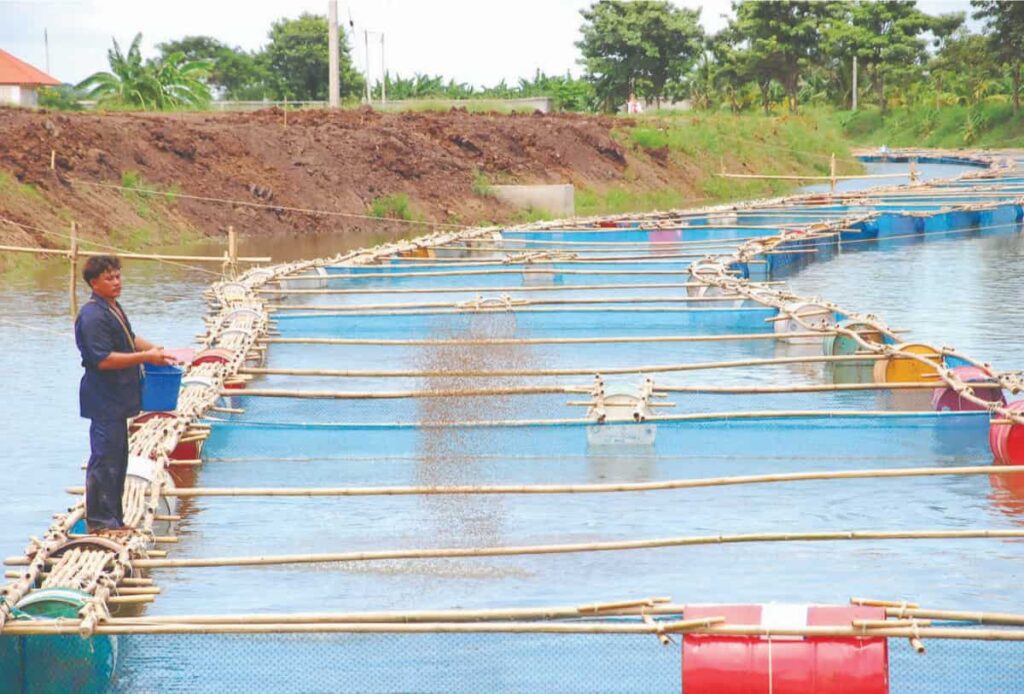
In recent years, contract fish farming has emerged as a popular model of fish production in India. Under this model, farmers are provided with fingerlings, feed, and other inputs by companies or cooperatives, and they are paid for their produce at the end of the cycle. This blog post explores India’s contract fish farming industry, its benefits, and its challenges. Let’s check out more information about contract fish farming in India below.
What is contract fish farming?
Contract fish farming is a type of aquaculture where a company contracts the farmers to raise fish for them. The company provides the farmers with fingerlings, feed, and technical assistance. The farmers are responsible for raising the fish to market size and then delivering them to the company. Contract fish farming has become increasingly popular in India over the last few years. It is seen as a way for small-scale farmers to get involved in aquaculture without making a large investment.
It also allows companies to outsource their fish production, which can be more cost-effective than producing fish. There are some disadvantages to contract fish farming, however. Farmers may be able to sell their harvest if the company decides not to buy it, and they may need more control over how the fish are raised. There is also the risk that the company could go out of business, leaving the farmers without a buyer for their fish.
Benefits of contract fish farming
Contract fish farming is a system of aquaculture where the farmer raises fish on behalf of a company or cooperative. The fish are then sold to the market, with the farmers receiving a share of the profits. There are many benefits to contract fish farming including:
- It provides farmers with a regular income and predictable cash flow.
- It helps to stabilize prices in the marketplace by ensuring a steady supply of fish.
- It reduces financial risks for farmers, as they are not responsible for marketing or selling the fish.
- It can help to improve water quality and promote good husbandry practices, as farmers are incentivized to produce healthy and high-quality fish stock.
- It can create employment opportunities in rural areas and provide an alternative source of income for small-scale fishermen.
In case you missed it: Common Fish Diseases, Symptoms, and Treatment: Check How this Guide Helps Fish Farmers
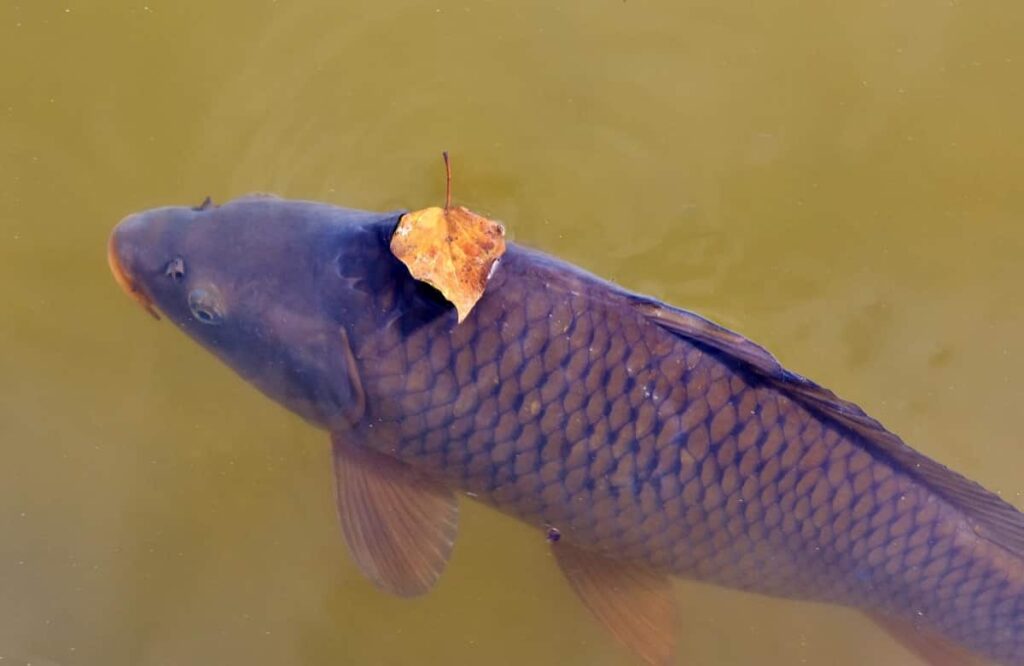
The risk involved with contract fish farming
- Disease outbreaks: There is always the risk of disease outbreaks occurring in fish farms, leading to mass fish mortality and financial losses for farmers.
- Weather: Extreme weather conditions (floods, droughts, etc.) can also impact fish farms adversely, leading to decreased production and losses.
- Market fluctuations: Fish prices can fluctuate greatly depending on market demand, meaning that farmers may only sometimes be able to get a good price for their produce.
- Social factors: There are also social risks associated with contract fish farming, as it can often lead to the displacement of local communities and environmental degradation.
Popular fish breeds in India
- Rohu: One of the most popular fish in India, Rohu is a freshwater species commonly found in rivers and lakes. It is a valuable source of protein and omega-3 fatty acids and is often consumed in India as part of a healthy diet.
- Catla: Another common freshwater fish in India, Catla is also found in rivers and lakes. It is known for its delicate flavor and firm flesh and is often used in curries and other dishes.
- Tilapia: A cichlid fish, Tilapia is native to Africa but has been introduced to Indian waters in recent years. Tilapia fish is a popular choice for aquaculture due to its fast growth rate and tolerance to poor water conditions.
- Mahseer: A member of the carp family, Mahseer is an important sportfish in India. It is found in rivers across the country and can grow to large sizes (up to 2 meters in length).
- Snakehead Murrel: The other fish breed is Snakehead Murrel which is gaining popularity, especially in south Indian states like Telangana, Karnataka, Kerala, and Tamilnadu
- Other breeds: Some other popular fish breeds include Tengra, Rani or Pink Perch, Ritha Pulasa Fish, and Hilsa
These are just some of the many different fish types commonly farmed in India. Contract fish farming offers farmers the opportunity to rear these valuable species in a controlled environment, ensuring a consistent supply of high-quality fish for both commercial and domestic markets.
In case you missed it: Contract Poultry Farming in India: Profits, Companies, Agreement, How it Works, The Pros and Cons
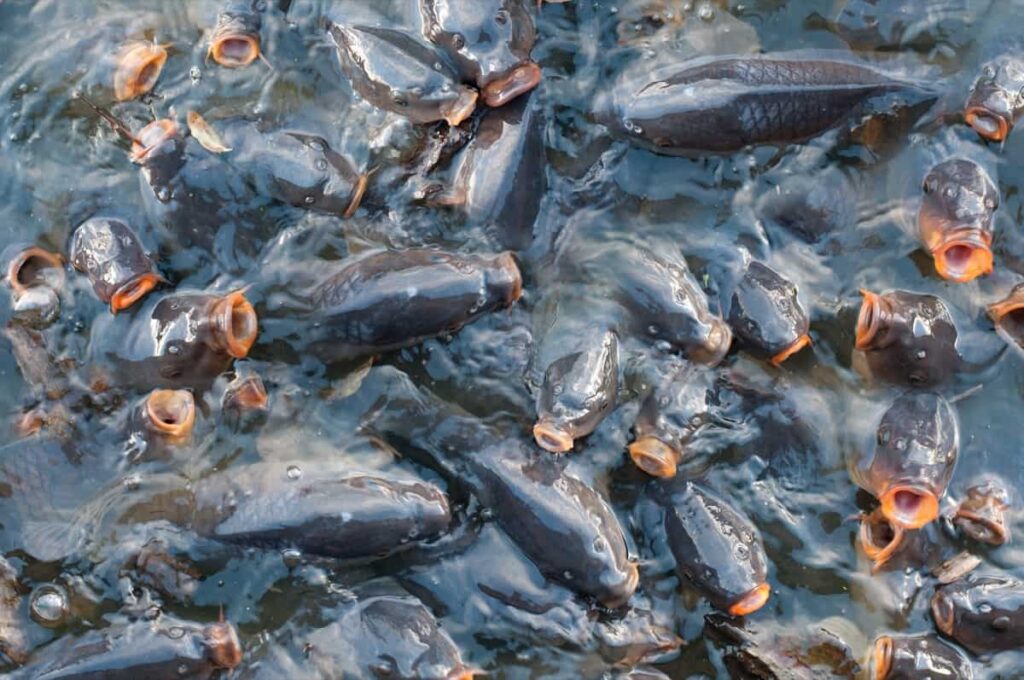
Cost of fish farming business in India
The cost of fish farming in India can vary significantly depending on the size and scope of the operation. For small-scale farmers, the initial investment may be as low as Rs 100,000 (approximately $1250). However, the investment could be upwards of Rs 1 crore for commercial operations requiring larger ponds and more advanced infrastructure. In addition to the initial investment, farmers must also factor in the costs of ongoing maintenance and upkeep.
This includes costs like water quality testing and management, feed, staff salaries, and electricity. Depending on the size of the operation, these costs can range from a few thousand rupees to several lakhs per month. Finally, farmers need to consider the cost of harvest and marketing their fish. Smallholder farmers selling directly to consumers may only be a few hundred rupees per kilogram. However, for those selling to wholesalers or processors, the costs can be much higher up to Rs 30 per kilogram.
Fish farming business plan in India
In India, fish farming is a relatively new industry with great potential. The demand for fish meat and seafood is growing every year, but the country’s wild fisheries cannot meet this demand. As a result, there is an opportunity for entrepreneurs to start contract fish farms. A contract fish farm is an aquaculture where the farmer agrees to raise fish for a specific customer or company. The customer provides the fry (baby fish), feed, and other inputs, and the farmer agrees to raise the fish to a specific size and weight.
The customer then buys the fish from the farmer at an agreed-upon price. There are many advantages of a contract fish farming business. It allows farmers to specialize in raising fish, which can be more efficient and profitable than other types of agriculture. It also gives customers certainty about the quality and quantity of fish they will receive. And it can provide farmers with a stable income since they are guaranteed a buyer for their product.
If you’re interested in starting a contract fish farm in India, there are certain things you need to follow:
- Research the market: Find out your potential customers and what kind of fish they want. You’ll also need to research the competition and determine what price you can charge for your product.
- Draw up a business plan: This should include your financial projections, marketing strategy, and operational plan.
- Get financing: You’ll need to invest in equipment and other supplies.
Fish farming training in India
In India, contract fish farming is outsourcing the rearing and production of fish to a third-party contractor. The farmer typically provides the land and water resources, while the contractor manages the pond operation, fish feeding, and harvest. Contract fish farming offers several advantages to both farmers and contractors. For farmers, it provides a way to generate additional income from their land and water resources without investing in the infrastructure and expertise required to rear and produce fish.
For contractors, it offers a ready market for their services and the potential for long-term relationships with farmers. The Indian government has been supportive of contract fish farming as a means of increasing fish production in the country. In 2013, the government launched a National Mission for Protein Supplements to double fish production by 2020. As part of this mission, the government has provided training and financial support to farmers and contractors interested in starting or expanding contract fish farms.
There are over 1,000 contract fish farms in India, covering an area of over 70,000 hectares (172,000 acres). These farms produce around 1 million metric tons of fish annually, worth an estimated Rs 20 billion (US$300 million). Carp (Cyprinus carpio) is India’s most common species produced on contract farms, followed by Tilapia.
In case you missed it: Contract Pig Farming in India: Companies, Agreement, Profits, How it Works and the Pros and Cons

Getting a fish farming license in India
In India, fish farming is a well-developed industry, and the government provides many incentives to encourage aquaculture production. To get a fish farming license in India, applicants must submit an application to the Central Marine Fisheries Research Institute (CMFRI). The CMFRI is responsible for issuing licenses for all commercial fishing and fish farming activities in India.
The application must be submitted along with the required documents, which include a business plan, bank statements, and proof of land ownership. After the review process is complete, the CMFRI will issue a license to the applicant. The license will be valid for five years and can be renewed after that.
Contract fish farming companies in India
In India, contract fish farming is a method of aquaculture where the farmer raises fish on behalf of a company. The company provides fish feed and fingerlings and pays the farmer for their services. This arrangement is beneficial for both parties as it helps ensure a consistent supply of fish.
There are many contract fish farming companies in India, each with strengths and weaknesses. Do your research about contract fish farming companies before signing any contracts to ensure that you get the best deal possible. Below is a list of some popular contract fish farming companies in India:
Aqua Farms
Aqua Farms is one of India’s leading contract fish farming companies. They have a strong presence across the country and have a good reputation for providing high-quality fingerlings and feed. However, they can be expensive to work with.
Kisan Fish Farm
Kisan Fish Farm is another popular choice for contract farmers in India. They offer competitive prices and have a good selection of fingerlings to choose from. However, they have been known to need to catch up on payments occasionally.
Devi Seafoods
Devi Seafoods is a well-known seafood supplier offering contract farming services. They have a good reputation for being reliable and providing high-quality fingerlings. However, they can be quite expensive to work with.
Before signing any contracts, it is important to research and compare the different companies to find the one that best suits you.
Contract fish farming agreement in India
In India, contract fish farming is an agreement between a farmer and a company or individual. The farmer agrees to raise fish for the company or individual, usually in return for a fixed price per kilogram of fish. Contract fish farming has become increasingly popular in India in recent years, as it offers farmers a way to guarantee their income and reduce risk. It also allows companies or individuals to secure a reliable supply of fish. There are few important things to keep in mind when entering into a contract fish farming agreement in India:
- Make sure you understand the terms of the agreement. Read it carefully and ask questions if anything is unclear.
- Ensure you are comfortable with the company or individual you are contracting with. Please research and ensure they are reputable and have a good track record.
- Be realistic about contract fish farming business. Be sure to commit yourself and set yourself up for success. Make sure you can meet the targets set out in the agreement.
- Have a good relationship with your local fisheries department. They will be able to offer advice and support if needed.
- Keep good records of everything related to your contract, including receipts, invoices, and correspondence with the company or individual you are contracting with. This will help if there are any disputes later on.
In case you missed it: Medicinal Plants Herbs Contract Farming in India: Profits, Companies for Tulsi, Ashwagandha, Brahmi, Aloe Vera, Shatavari, and More
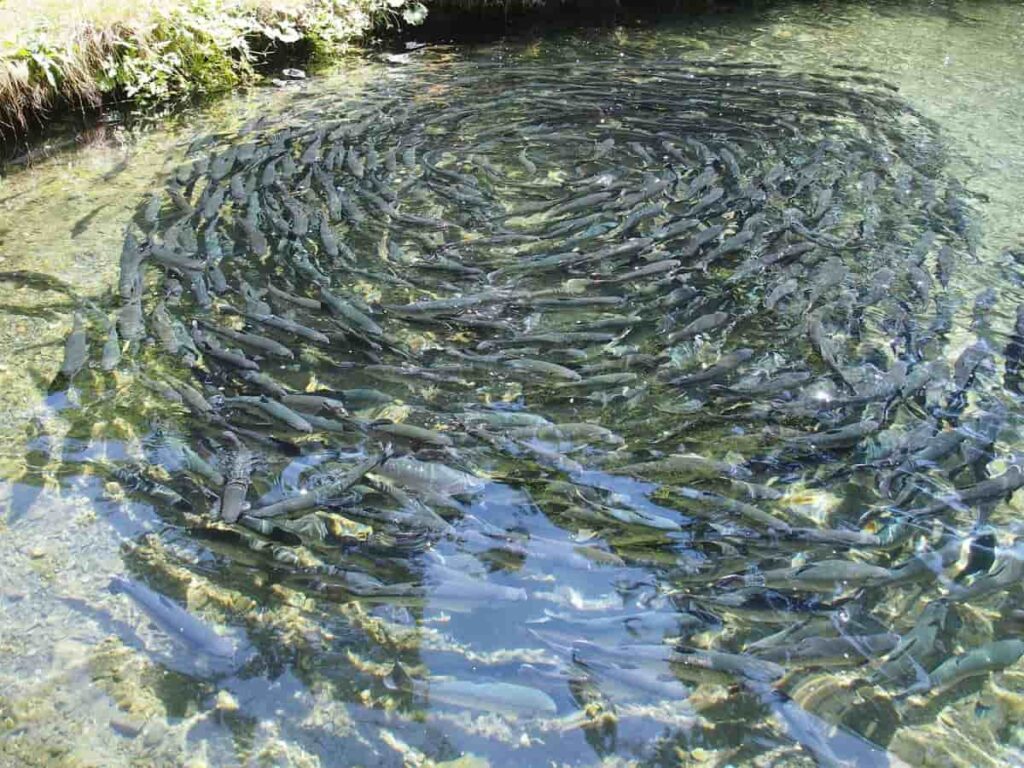
Process of contract fish farming in India
In India, contract fish farming is a process by which a farmer agrees with a company to rear fish on their behalf. The company provides the fish fry, feed, and other necessary inputs, and the farmer agrees to rear the fish till they reach a specific size. The farmer is then paid for his services according to the weight of the fish harvested.
Contract fish farming has become popular in India in recent years, as it offers farmers a source of income that is not subject to the vagaries of weather and crop yields. Moreover, it requires relatively less investment than other forms of agriculture, making it affordable for small and marginal farmers. The process of contract fish farming typically involves four main steps:
- The company provides the farmer with fry (young fish) or fingerlings ( juvenile fish), along with feed and other inputs.
- The farmer rears the fish till they reach harvestable size (usually 6-8 months).
- The farmer sells the fish back to the company at pre-agreed prices.
- The company pays the farmer according to the weight of harvested fish.
Steps involved in setting up a contract fish farm
If you’re considering entering the contract fish farming business in India, there are certain things you need to know. Here are the steps involved in setting up a contract fish farm:
- Finding land: You must find suitable land for your contract fish farm. The land should be close to a water source and have enough space to build the necessary infrastructure.
- Building the infrastructure: Once you have the land, you will need to build tanks, ponds, or other enclosures for housing the fish. You will also need to set up filtration and aeration systems.
- Stocking the farm: After your infrastructure is in place, you will need to stock your farm with fingerlings (baby fish). You can get these from a hatchery or another source.
- Feeding and caring for the fish: Once your farm is stocked, you will need to provide food and care for the fish. This includes regular feeding, cleaning the tanks/ponds, and monitoring water quality.
- Harvesting the fish: When they are ready for harvest, you will need to arrange for their transport to the market or processing facility.
In case you missed it: Dairy Contract Farming in India: Companies, Agreement, Profits, How it Works and the Pros and Cons
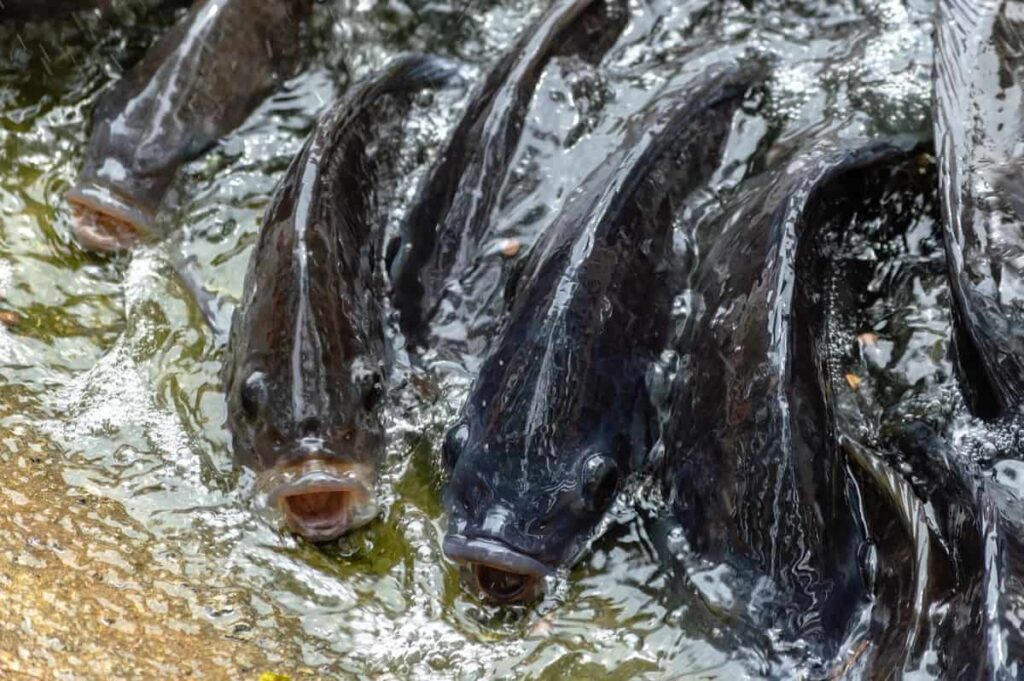
Conclusion
Fish farming in India is a lucrative business opportunity with immense potential. With the right contract fish farming arrangement in place, you can be assured of a regular supply of fresh, healthy fish to sell. If you are looking for an innovative way to enter the Indian market, consider contract fish farming a viable option. If you live in the following states and plan to go for contract fish farming in India, this blog post may help you to set up a profitable contract fish farm.
| Andhra Pradesh | Karnataka |
| Arunachal Pradesh | Kerala |
| Assam | Madhya Pradesh |
| Bihar | Maharashtra |
| Chhattisgarh | Manipur |
| Goa | Meghalaya |
| Gujarat | Mizoram |
| Central India | South India |
| Haryana | Sikkim |
| Himachal Pradesh | Tamil Nadu |
| Jharkhand | Telangana |
| Nagaland | Tripura |
| Odisha | Uttar Pradesh |
| Punjab | Uttarakhand |
| Rajasthan | West Bengal |
| North India | West India |
- How to Raise Pigs in Your Own Backyard: A Comprehensive Guide
- Budget Friendly Sheep Shed Ideas: Cheap and Low-Cost Tips
- How Much Do Cattle Farmers Make: Revenue Streams in Cattle Farming
- Management Pests and Diseases in Your Cotton Field
- Sheep Farming Business Plan for Beginners
- Aquaponic Farming at Home: A Step-By-Step Guide
- Profitable Village Farming Business Ideas in 2024
- High-Yield Aquaculture: Fast-Growing Fish for Farming
- Effective Fish Pond Construction Techniques for Beginners
- Irrigation and Water Management in Pineapple Farming
- Blossom to Harvest: Mastering Flowering and Pollination in Papaya Farming
- Pig Fattening Essentials: From Selection to Sale for Beginners
- Raising Wagyu Cattle: A Complete Guide for Premium Beef Production
- Soil Types and Their Water Holding Capacity
- Optimizing Irrigation Schedules for Coconut Groves for Enhanced Yield
- Espresso Your Garden: Coffee Grounds for Healthier Acid-Loving Plants
- The Best Soil Mix for Snake Plants: How to Mix Your Own Snake Plant Soil
- Green Thumb Success: Expert Tips for Cultivating Greenhouse Beans All Year Round
- Bloom All Year Round: The Ultimate Guide to Indoor Hyacinth Care
- Eco-Friendly Gardening: How to Make Liquid Fertilizer from Kitchen Waste
- Ultimate Guide to Grow Anise in Pots: Explore Seed Propagation to Harvesting
- Guide to Raising Chester White Pigs: Discover Breed Facts to Growth Management
- Mastering the Elegance: The Ultimate Guide to Weeping Cherry Tree Care, Planting, and Maintenance
- Ultimate Guide to Planting Garlic in Grow Bags: Growing Strategies for Beginners
- How to Fix Spider Plant Leaf-Related Problems: Natural and Organic Remedies
- 10 Reasons Why Your Tulsi Plant is Shedding Leaves: Home Remedies and Solutions
- Optimizing Growth and Yield: The Advantages of Palm Bunch Ash Fertilizer
- Utilizing Neem Oil Extract as a Natural Pesticide for Hydrangea
- From Soil to Harvest: Various Ways in Which Farmers Can Use AI Tools
- Steps to Encourage and Induce Citrus Flowers: A Comprehensive Guide
- How to Fix Snake Plant Leaf-Related Issues: Natural and Organic Remedies
- Transform Your Garden into a Fragrant Oasis with Raat Ki Rani (Night Blooming Jasmine)
- Discover the Ideal Chicken Breeds for Philippine Farms
- How to Create a Poultry Egg Farm Business Plan for Profits
- Grow Lemon Cucumbers Like a Pro: Insider Techniques for Bountiful Yields
- Ultimate Guide to Caring for Your Pink Princess Philodendron: Tips for Thriving Variegation
